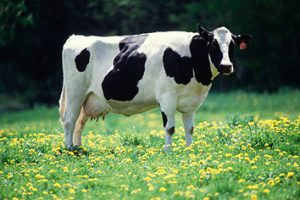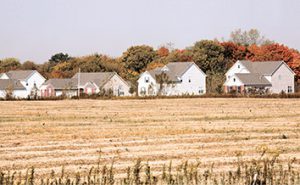Larger-than-expected corn crop could slow food inflation
U.S. food prices may ease later this year now that farmers have planted the second-largest corn crop in nearly seven decades.
U.S. food prices may ease later this year now that farmers have planted the second-largest corn crop in nearly seven decades.
Purdue University scientists have won a $5 million federal grant to help corn and soybean farmers adapt to the various climate change scenarios global warming is forecast to bring in the coming decades.

Fair Oaks Farms in northwestern Indiana plans by next year to have 42 new delivery trucks running on compressed natural gas created by harnessing microorganisms to turn cows’ manure into biogas.
Equipment Technologies, a manufacturer of agricultural spraying equipment, plans to invest nearly $6.4 million in an expansion of its Mooresville operations, more than doubling its work force by 2015.
A Chicago-based wind-farm developer is planning a $175 million farm about 45 miles north of Indianapolis that will span parts of Madison, Tipton, Grant and Howard counties.
Indiana farmers made up a lot of ground in the past week, but experts say they are still far behind their typical planting schedule because of this spring's drenching rains.
Indiana's wettest spring in a century has put the planting of the state's corn crop so far behind schedule agricultural experts predict the delay could cost the state's farmers about $1 billion in losses.
The U.S. Department of Agriculture reports only 2 percent of Indiana's corn crop had been planted by last week, compared with a five-year average of 15 percent.
A grant of $31.9 million awarded to Purdue University may translate into a more sustainable agricultural sector for Afghanistan, according to U.S. Sen. Dick Lugar.
The widespread Internet posting of a letter by a retired Purdue University researcher who says he has linked genetically modified corn and soybeans to crop diseases and to abortions and infertility in livestock has raised concern among scientists that the public will believe his unsupported claim is true.
Indianapolis-based Green B.E.A.N. Delivery planted a seed here four years ago, and now the organic food-shipping service is cultivating its own 60-acre farm in Sheridan.
The Indianapolis Parks Foundation plans to use a $150,000 grant from Indiana University Health to start an organic farm on the east side of the city benefiting Gleaners Food Bank.
The U.S. Department of Agriculture says there are about 900 winter farmers’ markets in operation—a 17-percent increase over the past two years. Two thrive locally, one downtown and one in Zionsville.
An Indiana firm under federal investigation for passing bad checks for cattle purchases could find itself forced into bankruptcy proceedings if a judge grants a motion filed by some of those owed money.
The fortunes of Indiana’s 12 ethanol plants, and the farmers and truckers who supply the corn to make the motor fuel additive, hinge on two decisions facing Congress and federal regulators in the weeks ahead.
Many Indiana farmers who had been worrying about a late summer drought are now looking forward to some extra spending money thanks to high grain prices.

The real estate bust and a drought in transactions make values all but impossible to gauge.
The real estate bust and a drought in transactions make values all but impossible to gauge.
Indiana’s official climatologist says Indiana is drier than surrounding states.
An Oct. 13 workshop will offer tours of Purdue University's vineyard at Meigs Farm during which participants will learn the basics of juice and wine quality control. The workshop is run by the school's Wine Grape Action Team, a group that aims to help Indiana vintners and wine grape growers.